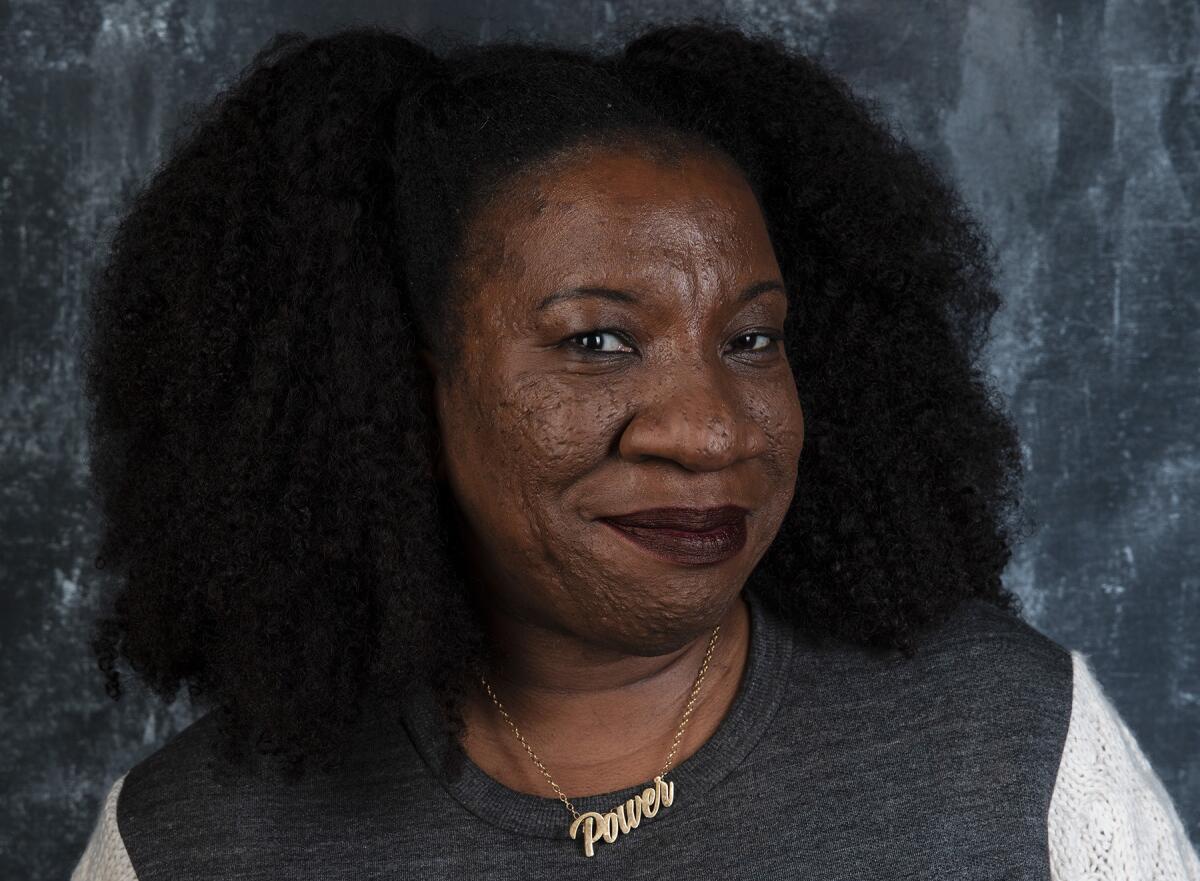Tarana Burke debuts powerful #MeToo PSAs spotlighting sexual violence survivors

- Share via
While the #MeToo movement has shed light on the ubiquity of sexual harassment, assault and rape, a majority of that spotlight has centered on the assailants: their horrific crimes, numerous cover-ups, eventual oustings and, sometimes, professional resilience.
A new set of powerful public service announcements rejects that status quo by bleeping out the name of a well-known perpetrator. Instead, the videos — from creative agency Deutsch and #MeToo movement creator Tarana Burke — focus on the dignity, humanity and healing of survivors of sexual violence.
The clips — which debuted online Monday after a private screening at the Sundance Film Festival — feature firsthand accounts and reflections from survivors, including Terry Crews. "In the year that's gone by, I've learned that silence is violence," says the "Brooklyn Nine-Nine" star in the video. "I will not be shamed. I did nothing wrong."
Additionally, Emily Waters, Daniela Contreras and an anonymous survivor break their silence in the PSAs, which pair raw audio of their stories with animated illustrations and text.
"It was very important to focus on the types of stories that are generally less represented in the media," explained Kelsey Hodgkin, Deutsch Los Angeles' head of strategy. Indeed, the PSAs include testimonies from African American men, an undocumented worker and a survivor of intimate partner violence.
Burke hopes these videos help redirect the #MeToo conversation — and coverage — to center on the survivors instead of the predators. She spoke to The Times about creating the movement's first PSA campaign and spurring others toward everyday action.
Why make these PSAs?
In the year and a half since #MeToo has been in this international spotlight, the popular narrative has been so focused on perpetrators and policy, and we haven't seen enough conversation about the millions and millions of people who have actually said, “Me too.” And what has become painfully clear is that the world doesn't really understand the life cycle of a survivor.
The PSA is a great way to help people get rid of any preconceived notions and understand what survivors are actually feeling and thinking. And the people who volunteered to be part of this PSA are putting their stories out in the world very bravely, but they're also helping us to shift the narrative.
Of the four survivors highlighted, one is a celebrity and another is anonymous. How did you choose these participants?
We definitely wanted to have a spectrum of people. #MeToo isn't necessarily a women's movement; there just hasn't been enough attention paid to men who deal with sexual harassment and sexual abuse. It really is a movement for all survivors, however they identify.
We also wanted to highlight young people and immigrants. Sexual violence has nothing to do with celebrity status, and it's important for everyday people to hear other everyday people talking about their survival.
However, I also think it's important for us to not trivialize the experiences of people in Hollywood, as if they haven't survived sexual violence. Even if you're a celebrity, you also should be seen and heard and believed.
What's the best way non-survivors can support the #MeToo movement?
Empower survivors by empathizing with them. Try to understand what this life is like; try to put yourself in this place where you’ve have this experience. I know sometimes people are like, “I want to do something more, I want to go out and volunteer, I want to write a check.”That’s great, but it’s important that people have empathy for survivors, because these are the people who will be jurors on trials, who will influence public opinion about policy. We have to make sure that those people really understand what it is we hold with us.
Twitter: @cashleelee
The biggest entertainment stories
Get our big stories about Hollywood, film, television, music, arts, culture and more right in your inbox as soon as they publish.
You may occasionally receive promotional content from the Los Angeles Times.








